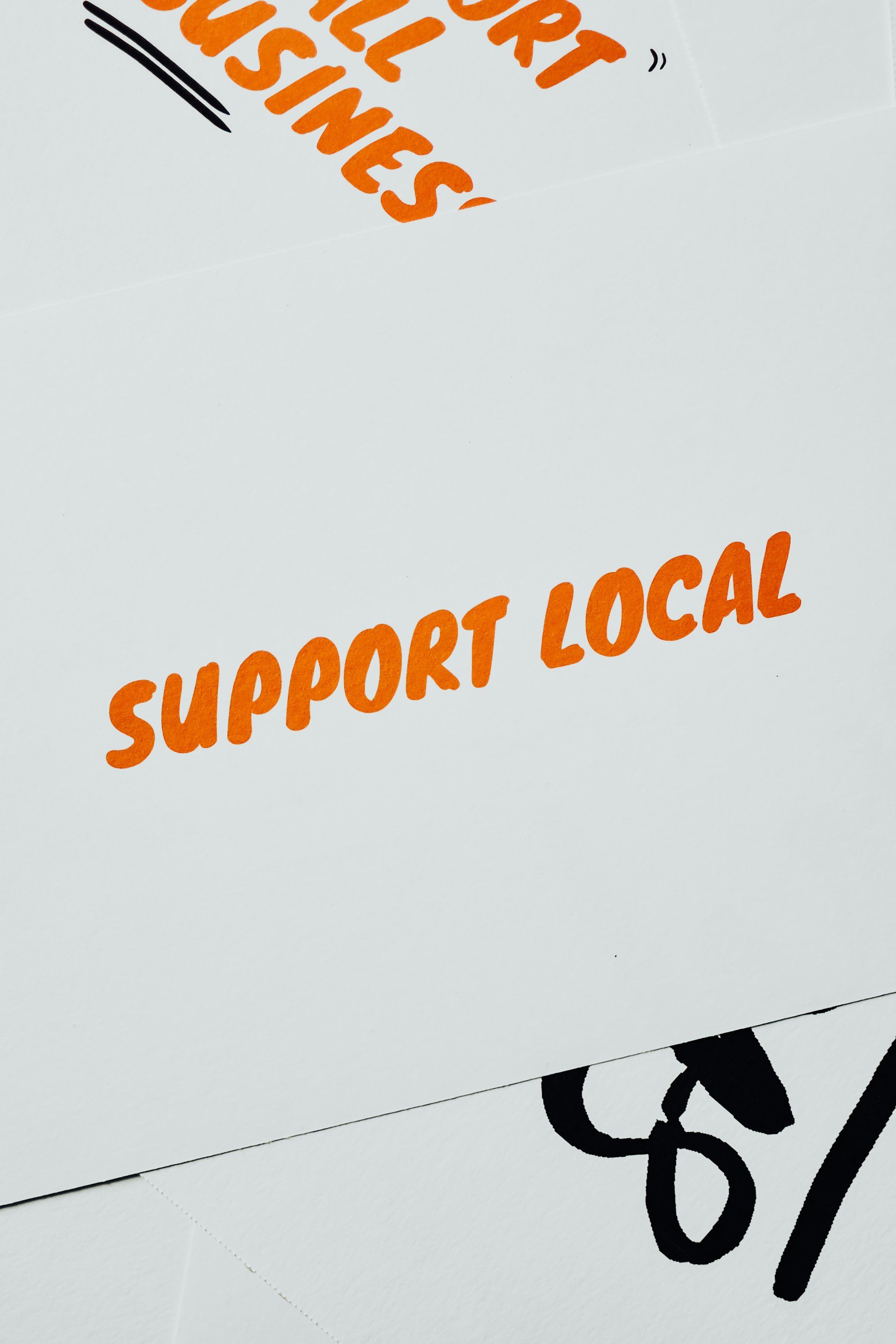Blog Layout

Content marketing provides the kind of quality content your audience is looking for. Marketers in today’s business climate must yield to the interests of their customers to be successful in the same way that party planners who want people on the dance floor must select music the vast majority of people in attendance will find appealing.
Content marketing has to start somewhere and the best place to do that is with a couple of evergreen pieces. These are strong heavy-hitting, attention-getting pieces of content you know your audience will respond to. Before you begin creating the content suggested here, make sure you have a good understanding of who your ideal customer is (from demographic and preferences standpoints), what they are looking for, and how you can help them. Knowing this vital information is essential to creating content they care about.
Once you know who you’re speaking to, it’s easier to create content personalized for them. If you serve multiple types of customers, either narrow it down to your ideal customer and market only to them, or create several buyer personas and produce content that will appeal to each segmented group.
Your Business Story
This is not your About page. This is the story you tell through interactions with your customers. Your business story should follow a traditional story arc/plot line of:
1. hero wants something
2. hero faces obstacle in trying to get what he/she wants
3. hero is helped by mentor-type and ultimately succeeds in getting the desired object, status, or outcome
Before you run off and start penning the obstacles you faced in opening your own business, remember this is not about you. To craft an appealing business story to your audience, you are not the hero. Your business is the kindly mentor – the Obi-Wan character – who helps the hero, your customer. This is a much more evocative approach from an engagement aspect than telling everyone you are the hero and got exactly what you wanted at the end of the day.
Cast your customer in the role of the hero and you’ll have potential customers looking at that role and thinking they, too, could be a hero. All it takes is determination (and your help).
An Answer to Your Most Asked Question
Another component of effective content marketing is producing content in the medium you audience responds to. You can figure this out by dedicating some R&D time on social media. Share video, audio, and written pieces on the same topic. Which format consistently gets the most shares? Create more content in that format.
After you know what content your audience prefers, take to that medium to answer the most common question asked of your business. Here are examples of popular question types (insert the critical information that applies to your business):
What’s the difference between __________ and ___________?
How do I know I need a new _____________?
How much do ____________s cost?
How do I know if I’m dealing with a reputable ______________?
How do I select the perfect ____________ for me?
When creating the content, use the question as the title. People often search by entering questions not keywords. For instance, if I want to know if I need a new air conditioner, I am more apt to search something like:
How do I know if I need a new AC?
than
air conditioners
Creating content based on customer questions is more likely to place you higher in search results than merely optimizing for keywords.
A Gallery
If you sell products or services that are visually appealing, create a portfolio to showcase what you sell. If you are an accountant, placing 1099s on your site probably won’t yield any conversions and could lead to breach of privacy lawsuits; create a gallery of testimonials instead.
This can be done formally by asking clients for them and creating case studies, or compiling them from other places and housing them on your website. Some people even use Favorites on Twitter to capture positive things people have said about them. Then when someone asks for testimonials, the business refers them to their Twitter profile’s Favorites section. The one problem with this is that you don’t own Twitter and they could remove this feature overnight without warning.
In addition to these three types of content you need to be committed to consistent content creation and posting. Select a schedule you know you can adhere to and provide helpful information from others to fill in the gaps. Your customers may even be a source for that content.
Whatever your schedule or your content source, the most important thing to remember is that content marketing is like hosting a party. If all the food, drink, and entertainment are your favorites and not that of your guests (or customers in this case), you can be assured they won’t stay very long.
B2B Connections

By Sara Hoffner
•
June 20, 2024
Create a Loyal Following With a Facebook Group for Your Business Beginning marketers often think a Facebook group is an ideal way to bring their target market together. And while we’re not discounting the truth behind that, most novice businesses make critical mistakes when creating a Facebook group for the first time. Their mistake negatively impacts their ability to engage their target market. And it’s such a common mistake that it needs to be addressed before we give you suggestions on engaging your market through this medium. Most businesses that start a Facebook community place their business at the center of the community. And why not? That’s the point, right? You want more business so it should be about you, yes? No. Your business should not be the crux of the community. Your target audience’s interests (that you cater to) should be. By building a community around a shared interest relevant to your target market, you can boost engagement, gather valuable insights, and ultimately drive sales. But how? If it’s not about your business? Let's explore how this works with a few examples. Beyond the Product or Service: Creating Connection Here’s some examples of how some businesses might create engaging Facebook groups around a common interest. A bookstore could spend its time promoting its new releases and sales on its social media channels. Or if could create a group for local readers to discuss favorite books,share recommendations, and participate in virtual book clubs.This is an easy way to identify people in the area who enjoy reading. The bookstore can still promote its sales and new books but it’s doing so to an interested audience, while also helping them to connect to one another. This sort of connection keeps them invested in the group in a way that boring self-promotion does not. A yoga studio or gym could go beyond class schedules by forming a group members could discuss yoga poses, share wellness tips, healthy eating plans,and support. A craft brewery or winery could tap into the local beverage scene to become a hub for beer (wine or spirits) enthusiasts to share reviews, discuss brewing and fermentation techniques, and stay updated on the business's latest offerings.They can also discuss wine pairings and other complementary topics. A children’s clothing boutique may create a “bad moms” or “bad parents” online hangout where they can share parenting tips, hacks, and commiseration for some of the most trying and rewarding times in one’s life. Now that you have a few ideas on the kind of group you could create around your business and your primary market’s needs, let’s talk about how to start your Facebook group. How to Build an Engaging Facebook Group Identify Your Market . What interests or passions unite your target customers? Choose a topic that genuinely excites them. Find an angle that is appealing to that market. It should be in keeping with your brand’s tone. Write a compelling description where you clearly explain the group's purpose, guidelines, and the benefits of joining. The last one is the most important. What Will they get from being a member? Why should they join? Roll out the welcome mat by creating a warm, welcoming environment. Consider a "Welcome Thread" or pinned post with essential information. Some groups ask questions of those who want to join. Post regularly and consistently. Share relevant articles, polls, questions, and thought-provoking discussions. At some point, the group will hit “critical mass” and a lot of the conversation will go on around you. But in the beginning, you will need to seed it and keep the conversations going. Recruit loyal customers and staff to help. Promote your group on all platforms—your website, email newsletters, and other social media channels. If you have a brick-and-mortar business, tell shoppers. Add the link to your email signature. Offer exclusive perks . Host special events, early previews or access, Q&A sessions, flash sales ,or contests exclusively for group members. Spark interaction by responding to comments promptly, acknowledging contributions, and highlighting active members. Welcome new members. Share Exciting information like member growth. Moderate posts and maintain a positive and respectful environment. Address any conflicts or inappropriate behavior swiftly. Communicate courtesy expectations. Post photos, videos, and infographics. Behind the scenes images and videos as well as blooper reels can be very engaging. Monitor group insights to understand what type of content resonates most with your audience and understand best times to post. Host live Q&A sessions with experts, special guests,or influencers in your field. Additionally feature local businesses your audience would be interested in. If you’re a bookstore, for instance,highlight someone who makes special gifts for readers and literary merchandise. If you do that, you can also… Collaborate with complementary businesses to offer joint promotions and exclusive deals to group members. Create challenges or contests to encourage participation and foster friendly competition. Ask questions that will get people talking. What Does a Thriving Facebook Group Do for Business? There are several benefits to hosting a Facebook group including enhanced brand visibility and stronger customer relationships and invaluable feedback and insights into your target market's preferences. Instead of listening on social media, you’re hosting the platform where your ideal market is talking and sharing their insights. Use those insights to create a platform for launching new products or services and generating buzz. Does a loyal community of brand advocates and potential customers sound good? You can start a Facebook group today if you’re clear on what your audience wants. But remember, it takes time and dedication to foster an engaged community. Be patient, consistent, and most importantly, make it enjoyable for everyone involved. After all, it's about them, not you.

By Sara Hoffner
•
March 18, 2024
Are You Forgetting the Most Important Part of Hiring? Hiring is one of the costliest things you do as a business as it can leave you exposed and vulnerable. While a good hire can be a turning point in your business, a bad hire can leave you (and your employees) reeling. That’s why the interview and selection process are important. However, it’s what you do after that that will shape the employee and your team the most. No matter the size of your business, if you are bringing someone new on, you must consider the onboarding process. What Is Onboarding and Why Does It Matter? Onboarding is the first exposure your new employee has to you and your business. A bad—or nonexistent—onboarding process will override an enjoyable recruitment. Recruiting is the courtship. Employment is the marriage. If you did something in recruitment/hiring that isn’t reflected in the first few days on the job, the new employee will feel a disconnect and may begin pulling away. Onboarding sets the tone for your fledgling relationship. It shapes how they’ll feel about leadership and their peers. And it can increase employee productivity by 72% and employee retention by 80%. So, it’s worth the effort. Onboarding goes beyond gifting and training. And should be a consideration for every size business. If you are hiring, you ’re never too small to consider onboarding. Components of a Successful Onboarding Program The onboarding process should consist of a: Solid introduction to what your business is (mission) andwhat you do(training). Most employers know how critical training is, but they forget to introduce the new employee totheir position in the universe. A good onboarding shows the employee “you are here” and gives them a mission of how they fit into the larger plan, thus giving them purpose early on. Welcome. Onboarding is making them feel part of a team. This should begin with a welcome email (or text) and a “what to expect” on your first day before they arrive. If you run a small operation, this may seem like overkill, but firsts can be unnerving. Employees should know where they can park, what they should wear,and what lunch will look like (will you take them out? Is there a special hour theymust take lunch?) Sharingthis info will help them feel at ease and excited about joining the team. Buddy. If you’re more than a team of one, consider assigning them a peer buddy to answer their questions early on and check in on them. A buddy can likely give them more attention than you can and wil lfeel more approachable. List of resources. Make sure they know where to go for what. It’s important for the new employee to feel like they have what they need to succeed. Explain howyou will work with them to remove road blocks and what they can do to make that happen. Detail the process. Introductions. Help them get to know othersin all departments or verticals. Again, this makes them feel like they’re part of something bigger. Understanding of company culture. If there’s something you require of employees or something you don’t want them to say, like using the excuse “I’m new” to a customer, train them early on it and ensure they understand the “why” behind it. They’ll be more apt to remember the training if they know why it’s critical or what it does for the customer. Establish work/life balance early on. Bring up vacation schedules and how they’re decided. Inform your new employee about breaks and ensure they take them. Model good behavior in establishing a work/life balance for them as well if you want them to have staying power. Explain what they can expect from training now and in the future. Tell the new employee how you prioritize learning and growth. Give them some swag. This is the honeymoon phase for your employee. Whenyou give them some swag, they not only feel welcomed, but they’re also more likely to become a branded advertisement for you because they’re proud of their new role. Be ready. One of the most critical things behind an onboarding process is that it gets you ready for your new employee. If you take the time to recruit, woo, and hire a new employee and then they show up on day one and don’t have a physical space and the tools needed to perform the job, they can feel like an after thought. Have everything ready for them the day they start. Do Small Businesses Need Onboarding? The short answer is yes. The goal behind onboarding is to exhibit company culture early on and create an effective training program and introduction to your business. Even if you’re a company of one, it’s likely you want to continue to grow. This new employee can help you build a foundation for success. So, it’s essential to create a strong one with staying power (aka retention). If you don’t take the time to onboard your employee(s), you’re trying to create a foundation that keeps getting swapped out and lacks consistency. A strong onboarding program is as essential with your first employee as with your 101st employee since you are only as strong as your weakest team member. Never is that more apparent than with employee #1.

By Janelle Negen
•
September 28, 2021
It happens. People buy from you and they love you. Then life gets in the way, and they don’t return. Sometimes it’s because they no longer have use for your products or services like when you sell gourmet dog biscuits, and they no longer have a pet. Sometimes they moved out of your area, and you don’t offer e-commerce options. Most often though, your business has simply slipped their minds. It’s no longer on their radar or part of their buying habit. It wasn’t something you did. They just have other things going on. In these cases, you need to reengage them and bring yourself back to top of mind. Here are a few ideas on how you can do that. 10 Ideas to Reengage Past Customers for More Sales Selling to previous customers is easier than winning over new ones. It costs less and because they’ve given you their money once—unless they had a terrible experience—they are likely to do it again…once you pique their interest. Here are ten ways you can get them to pay attention to you again: 1. Send to your list. If you have a past customer list, use it. Send out an email (or mailer) telling them you miss them. Offer them a discount, BOGO offer, or free gift (or upgrade) with purchase to bring them in the store again. 2. Host and market an event. Invite people whose past buying history matches your event. 3. Share pictures of past customers (if you have them) and invite people to tag themselves on social media. 4. Start sending out email newsletters or launch an email nurture campaign. 5. Utilize digital retargeting through Facebook or Google so your ads are shown to people who have visited your site. 6. Post pictures on Facebook of your items and tag the items with cost and description (this is a nifty feature on Facebook). 7. Ask people to share pictures of themselves on social media with whatever they purchased from you. 8. Ask funny questions (or tell stories) involving your product or services on social media. For instance, if you’re a plumber, ask your social media audience what they think the weirdest thing you’ve ever pulled out of a drain was and then tell them. 9. Create a Facebook group for past customers (if it makes sense for your product and brand). 10. Attend industry (or community) events. Nothing like the serendipitous meeting to get them thinking about you again. When it comes to reengaging customers, it’s a lot like your other relationships. Out of sight can be out of mind. Even if you’re not out of mind, you need to spur action. If you want to increase sales, you must reconnect.

By Janelle Negen
•
August 5, 2021
Do you want more customers? Then you need to remove the friction behind doing business with you. Even if you have great customer service, support, and sales, you may have unknown friction that exists before you see the face of your customer. Luckily, you can smooth that out with content. Here are two problems you need to solve for to take the guesswork out of doing business with you. Problem 1: You Don’t Know They’re Interested There are several studies out there that will tell you anywhere from 40-76% of a buying decision is made before a potential customer visits your business in person. The average person performs virtual research on your website, review sites, social media, and a host of other places before they even consider doing business with you. They’re performing this same due diligence with your competition. Content Solution: You want to identify the potential customer as soon as possible so you can start interacting with them. The easiest way to do this is through a downloadable lead generator. The lead generator must be something they need/want because they will be providing their email to receive it and will have to agree to receiving marketing messaging from you. If you can nurture them (with additional valuable content) and help them get to know your business, you’re more likely to entice them into wanting to buy from you. Problem 2: The Unknown I have always wanted to do aerial yoga, but several things have stopped me. I don’t have the grace and strength of a gymnast and I’m closer to 50 than 40. I’m a warm lead for an aerial yoga studio because it’s something I’m interested in. But I could easily become a hot lead if someone could ensure a beginner like me won’t get laughed out of the studio. It’s likely you have potential customers out there who feel the same. They may be interested in your offerings but there’s some hesitation. There’s something they’re worried about. Most people aren’t adventurous when it comes to spending money. But this hesitation can easily be smoothed over with some content. Content Solution: • Be honest about who your business serves. This is not a call to appeal to everyone. For instance, I don’t want to go to an aerial yoga studio that caters to 18-year-old Olympians. None of us will enjoy ourselves. You don’t want to give the impression your business or service is perfect for everyone, and everyone is welcome. While everyone may be welcome in a legal sense, there are some types of people who will love your business and others that won’t be a good fit. Don’t feel the need to cater to this latter group because if you do--and they don’t enjoy themselves—they may give your business a bad review. If your gym caters to ninja warriors, don’t market to couch potatoes. • Offer testers, trials, and other ways to try you out. Sometimes people need a freebie or deeply discounted opportunity to try out your offerings before they can commit to writing a check or handing over their money. Make sure that your trial or sample comes along with next steps and sets expectations for them if they choose to be a customer/client. • Go for feeling. It’s not (just) about what you’re selling. It’s about how people feel when buying from you. The experience is as important as the good or service. It’s also (often) the differentiator or unique selling proposition. For instance, many people felt good about buying from TOMs shoes because they donated a pair of shoes to a person in need for every pair sold. (It looks like these days they give 1/3 of proceeds to “grassroots good.”). People didn’t buy them because they were the most beautiful shoes, nor the cheapest. They made the purchase because it made them feel like they were doing something for someone else. But you don’t have to be super altruistic to encourage people to buy from you. However, you should provide them with some emotion or experience. “Squad shopping,” for instance, became popular during COVID. Many online merchants encouraged people to shop with their friends online giving them the experience of going to the mall together. This not only makes people feel good about your business but encourages more sales (hurray peer pressure!). If you want to increase your sales, you need to remove the friction behind doing business with you. Thankfully, it’s easier than you think when you create content around addressing major concerns.

By Janelle Negen
•
July 12, 2021
For a while, marketers have been telling people how to build relationships with potential customers on social media. They’ve shown them how to nurture a potential customer through the sales cycle to make a buying decision. And that’s what businesses have been focused on. But your social networks need to be doing double duty now. Yes, attracting new customers is important but there’s another great need right now—employees. You need to attract people to work with you and retain those you currently have. Social media is an incredibly strong way to do this. Consider the following types of posts to help you be seen as an employer of choice. Social Media for Hiring and Retention When it comes to writing posts to get people to work with you, you want to construct a story around what it’s like to work at your business. Keep in mind that every post should inspire, educate, or entertain while sharing interesting parts of your story. 1. A day in the life. Take a fun photo and tell a story about what you’re doing. If you can show how you are helping someone else live their best life, even better. That sort of post is contagious. 2. Showcase what your business does. That doesn’t mean that you post “we sell widgets.” Talk about how what you do helps others do something even more amazing. For instance, if you sell natural soaps talk about how you help people discover their beauty without all the harsh chemicals. That way they can feel as good about your products as they do about their exercise routines. 3. Compliment others. No one said your posts had to be about you. Sometimes telling others how amazing you think another business or person is can go a long way to making people feel good about your business. 4. Showcase your employees and why you are lucky to have them. Not only do people enjoy getting to know who you have working for you, this type of “bragging” about your awesome employees shows you are a good person to work for. 5. Slide in some perks. If you have cool perks at your job, find a way to post about them. Show your snack cart. Create a TikTok around a parody involving your business day. Use some creativity to showcase why someone would want to work for you. 6. Use hashtags. Use hashtags for areas and the types of jobs you’re hiring for. 7. Illustrate your unique culture. Take pictures and post about your unique culture. People will want to be a part of it. 8. Participate in conversation on places that matter. There are tons of Facebook groups and other places where people are talking on social media. Join in on the conversations and help people. Some will check out where you’re from and they’ll see your company. A community groups is also a good place to post that you’re hiring. But you’ll be more successful attracting a crowd if they already know you when you post. 9. Invite employees to post about you too. Give them the parameters of what you want them to address and the hashtags you want them to use. Then encourage them to spread your message. 10. Retweet or reshare what others are saying about you. Make image quotes out of reviews. Reply to people who talk about you. Others will see you’re involved in social media and responding. Check out GlassDoor and see what employees have said. Share that, if appropriate. Social media is a wonderful way to get attention from a recruiting perspective. It helps you stand out and entices people to want to work for you. Remember these days retention and recruiting on social media are just as important as bringing in new customers.

By Janelle Negen
•
June 1, 2021
Let’s face it. You can’t throw a rock these days without hitting a help wanted sign. If someone wants to work, there is little stopping them on the employer side. (There may be things like childcare or scheduling on the employee’s side but that’s another article.) If you’re running ads along with all the other employers out there, you’re at the mercy of their budgets—and if they have a larger one than you—they may be able to get their wanted ads in more effective places more often. A sign in your place of business can also be effective but only if the right person passes your place. To stand out in this employee’s market, you need to get creative. 5 Creative Ways to Find Employees Host an Event Host an event at your place of business around something other than hiring. For instance, if you’re an art studio, host an event around a new artist or a workshop on a painting technique. While people are having fun, enjoying your business and getting to know your staff, let them know what positions you have open. This approach allows you to lead with the culture of your company, which can be a big seller. Join the Chamber (and participate) Joining the chamber will allow you to meet a lot of new people but that is only the beginning. Yes, you can share the type of employee you’re looking for and the chamber pros may know someone who’s perfect for you. But don’t stop there. That’s what everyone is doing. Instead, get involved. Volunteer, participate, make your own introductions to uncover who is looking for what. The chamber audience is business-minded and working. But don’t just hard recruit. Look to be of service and people will want to help you too. Sponsor a Team or PTA Get plugged into your local children’s sports program and sponsor a team or work with the PTA at a school in your area. Mention to these entities that you are hiring. Your PTA may have a newsletter you could advertise in or may put you on their website. Sports teams may allow you to hang a banner at their sports complex. Empower Your Employees No one wants you to fill those positions more than your overworked team so give them an additional incentive to get the word out to friends and family. As a bonus, you are less likely to be ghosted by someone who has a connection to your business. Turn to Facebook There are local groups on Facebook. Run a search and see what comes up in your area then ask to join them. Each group has rules about posting for businesses but if you’re trying to help with a job and not selling, you likely can post when you want to. These groups are comprised of people who live in the area and those who are interested in moving. Keep this in mind when you post. Hiring is one of the most difficult challenges facing businesses today. It’s not enough to simply tell people that you’re hiring and what the position pays. For people to want to come to work for you, you need to show them what’s in it for them. Why will they enjoy working for you? What makes your business better than others? Use these creative approaches to find job candidates and then show them why your business is where they want to be.

By Janelle Negen
•
May 3, 2021
Some businesses are saying we are in the midst of a secondary pandemic. But it’s not the kind that requires masks and handwashing. No, this one is harder to control. There is a dearth of people willing (or able) to work for a multitude of reasons. Employers across the country are posting signs asking for patience with their existing employees because the business is understaffed. In fact, there are hiring managers who are scheduling interviews only to have no one show up! You can’t hire people who don’t even come to an interview. So what’s a business to do? Some people blame the business. They believe that the average person wants to work but can’t afford to because of minimal wages and expensive childcare. But the numbers don’t entirely speak to that. 30% of US households are “married without children” in 2020. Single-person households are 23% of the population. So for over half, children aren’t a concern. So, what can you do to combat the 3 common hiring problems these days? Here are some ideas. Employment Hiring Challenges Post-COVID If you brush wages aside as the main reason people don’t show up for interviews or first days for that matter, what are you left with? Working from Home It’s the elephant in the room. Why would a worker want to work behind a counter when they can sit at home and work (or sit by the pool or in a coffee shop, etc.)? An unparalleled number of businesses created work from home scenarios, and many will stick to those protocols long after COVID. Work at home is no longer a perk. It’s an expectation and it’s hard to compete with that. Solution: If your business is entirely in-person, it’s not like you’ll never be able to hire again. But it may take some creativity to appeal to workers. Things you might be able to do include flexible shifts (such as working around a child’s schedule) or floating start times within a window of time. The clue here is to get creative with the allowances you can make. Ghosting Is the Norm Ghosting has become the norm in relationships. Don’t want to deal with a difficult situation, ignore it and disappear. We’re starting to see this trickle down into our workforce. It’s acceptable to just not show for an interview, first day, drug screen, etc. Solution: This is difficult to do when you’ve only had minutes of interaction with a candidate. However, people are more likely to ghost when they don’t feel a connection or don’t think of the employer as a person but rather a large corporate structure as in the “they won’t even notice I’m not there” scenario. In order to avoid being ghosted, you have to do your best to connect with them in the short time you have. Share details about your life. Maybe you’re interviewing them on a special day and “fitting” them in or “clearing” your schedule. Do it respectfully and don’t force the guilt but try and make an impression. You may still get ghosted, but it will be less likely if they see you as a person with needs and feelings. Reevaluating the Same Old, Same Old With our forced downtime this past year, we were exposed to a LOT of marketing messaging and frankly many people are just burned out. They may find it hard to believe the claims of some companies. Another thing people may have done is reevaluating things in their lives that just aren’t working. Some people may have decided that life is too short to work at an unfulfilling job. Others may have seen this pandemic as a kick in the pants from the universe to start their own job. Maybe they saw how being a loyal employee can still result in a lay-off or furlough. Whatever the cause of their employment ennui, people have changed, and you’ll need to too. Solution: find out what your existing employees want (and what makes them stay with you). Use that in your job marketing. Ask employees for referrals. Reward them for their loyalty and they’ll talk about how great you are to their friends. Employers are facing an unparalleled time right now, finding it very difficult to recruit good people. For many businesses, it’s difficult to get interest let alone keep someone after their first day. In order to be competitive in the job market, you need to stand out. These tips should help you do that. But you’ll need to go beyond them to think of some creative experiences for new employees. While you’re at it throw a few in for your customers. You never know. A loyal customer may just want to become part of your team.

By Janelle Negen
•
March 29, 2021
Hope seems to be a big word these days. It’s taken the place of pivot. People are hopeful about recovery. People are hopeful about things returning to normal in the foreseeable future. And people are hopeful they can soon travel and visit loved ones they haven’t seen for a while. If recovery is right around the corner, now is the ideal time to revisit your marketing strategy and plan. Making critical changes now can bring you into alignment to make the most of recovery. Plus, it’s possible the needs and desires of your target audience have changed. Asking yourself the following questions about your business and marketing can help ensure that you have the data and information you need to make the most of the looming recovery. 1. Who is your ideal customer? Has it changed with COVID? 2. What is your marketing goal in 2021? What are your objectives/tactics for getting there? How will you measure success or how will you know when you’ve reached that goal? 3. What is your brand tone? Try this exercise: “We are ____ but not ____.” For example, we are informative but not boring. 4. What is your reputation in your industry and your community? What do people think of when they think of your brand/product/service? 5. Where is your target audience on social media (Facebook, Insta, etc.)? Are they still easily reached where you thought they were? 6. Are people still reading your blog? 7. What customer problem do you solve? 8. Do you sell through fear, inspiration, or solving a problem? Does that course of action still work for you? 9. What is the open rate on your newsletter? Has that changed with the pandemic? 10. Are you using a tracker that shows you where people are clicking on your website and/or newsletter? If yes, where are they clicking and where aren’t they clicking? What does that tell you about their needs? 11. Do you have an email list? 12. What data are you currently tracking and what are you doing with it? 13. What kind of content do your customers like best/have the most interaction with? 14. How many active followers do you have on each social media platform you participate on? How has that changed with COVID? 15. Do your customers enjoy a type of content you are not providing such as podcasts or videos? 16. What story are you telling? 17. How much does your average customer cost? 18. What are your customer retention strategies and how are you implementing them? 19. How has your product or service evolved over the past year? How has your marketing message changed? Does it need to? 20. What’s your call to action and does it fit where it is used? For instance, you don’t invite someone to buy when they’re just getting to know you on the About Us page of your website. Speaking of… 21. What are you doing to help people get to know, like, and trust you? 22. What part of your business is off-putting or scary for first-time buyers? What can you do to make it less so? For instance, gyms may be intimidating for the out-of-shape first timers. How can you reach them and be more inviting? A get-fit challenge is a solution to that because participants would know they’d be with other newbies. 23. Do you have a defined success metric for every campaign you implement? 24. In what area(s) is your competition falling short? In what areas are they strongest? How do you compare? 25. How many referrals (and/or reviews) are you getting? What vehicle/strategy are you using to get more? These questions are easily answered but implementing the answers/solutions takes more planning. It’s a lot of work now but once you put it in, you’ll be glad you did.
Contact Us
Phone:
(320) 334-3095
chamber@glenwoodlakesarea.org
Visit Us
7 First Street NW
Glenwood, MN 56334



